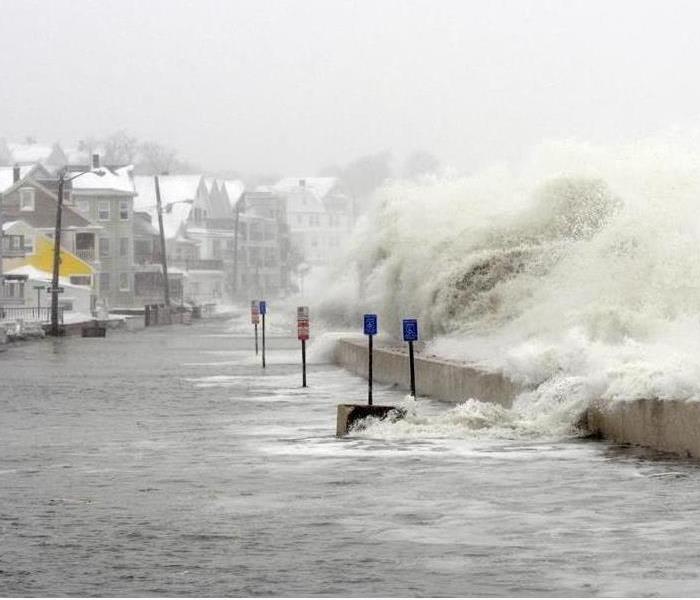Storms hit hard are you covered???
12/27/2016 (Permalink)
 New England Storms vary from Water, Ice, Snow, Fire, and occasional tornado are you ready? Who do you call and are you covered
New England Storms vary from Water, Ice, Snow, Fire, and occasional tornado are you ready? Who do you call and are you covered
Storm damage to homes can vary greatly. The kind of storm, where you are located, and what is going on around your home can all impact what goes on.
For example if you live near the coast and there is a storm surge coupled with some high tide serious flooding can be a major concern. This can be amplified if you are on the edge and beach erosion occurs. Many home owners have the bare minimum coverage levels of insurance and if you are not in a flood zone many do not have flood insurance. Guess what this would be classified as a flood and you would not get any assistance with the process of getting back to normal.
Should you live further inland and be surrounded by nature. A strong storm with a lot of wind can be your down fall. A dry winter coupled with some rain will loosen the roots of those large trees that provide you shade in the summer. With nothing solid to hold onto these trees can be easily uprooted and topple over. Should your home be in the way there is a lot of trouble to be had. Many do not have storm damage coverage for such events and will have no assistance getting back to normal .
Storms can also bring heavy wet snow. This snow can sit on a roof or melt. Should it sit a little too long it will become heavy and possibly cause a crack or gap in the roof or foundation that is not able to support the weight. When this happens and then the snow eventually melts which it will a lot of damage can occur. This water will find the path of wet to dry and many time during that search it leads to the inside of your ho me.
If you live in an area of open fields and wide open view of flat land or have a farm. The storms that ravage through could include a tornado. We have all seen the destruction and devastation of those. When a home is flattened or a roof has been ripped off from the wind what is left to protect you from the onslaught of rain damaging your belongings inside. Many time this secondary damage has very limited coverage and will be dependent on the speed in which you called someone about the first part of the damage and their response time. Make sure you are calling a professional that can arrive quickly. Mitigating your response time is doing your part of the insurance process.
Drought while not an actual storm event can lead to devastation and destruction. Many times this dry debris on the ground can be ignited and cause a literal fire storm. Once a fire has started if your home is affected there is a lot to be done. Also an investigation will be conducted to find the cause of the fire. Should that lead to anything malicious it is important to know what is and is not covered. Subsequently if there is a fire in your area but not in your home it does not mean you will not be affected. The odor from a nearby fire can infiltrate your home and cause quite a bit of damage. Ensure you are ready and know if your policy will cover such an event.
Many times if an insurance policy does not say it, It is not covered. That can turn into a major disaster if you are left to fend for yourself during a significant loss beyond your control. It is always wise to review your policy and make sure you have coverage for as much as you can. No one has insurance because they want to and certainly not because they expect to need to use it. Yet finding out you do not have the right coverage when you need it most is not the time to find that out. Call your agent or broker today and make sure that any unforeseen issues are addressed before it is too late




 24/7 Emergency Service
24/7 Emergency Service